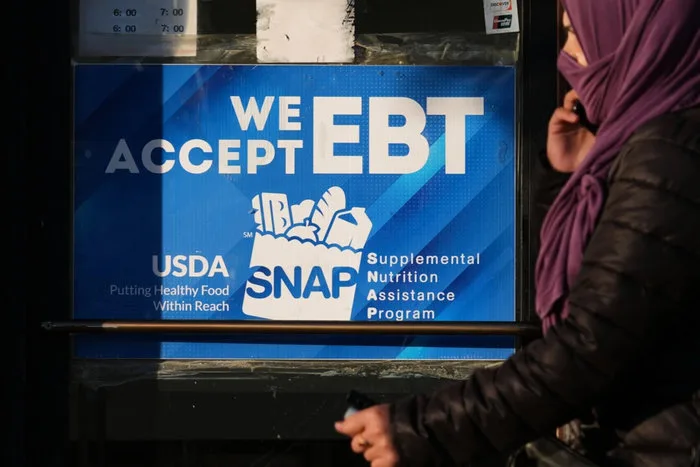By Matthew Vadum
The U.S. Supreme Court issued a late-night order Nov. 7 temporarily pausing a lower court’s order requiring the federal government to fully fund food stamps in November after a federal appeals court declined to do so.
Justice Ketanji Brown Jackson issued an administrative stay, which gives a court more time to consider an urgent case. The case is Rollins v. Rhode Island State Council of Churches.
Jackson, who oversees urgent appeals related to cases from Rhode Island, said the government stated that “without intervention from this Court, they will have to ‘transfer an estimated $4 billion by tonight’ to fund SNAP benefits through November.”
The government’s emergency application came hours after a federal appeals court declined to issue an emergency stay pausing a judge’s order that required the federal government to fully fund food stamps through November.
The food stamps program is formally known as the Supplemental Nutrition Assistance Program (SNAP).
The U.S. Court of Appeals for the First Circuit ruled earlier on Nov. 7 against the government’s request for an administrative stay.
However, the circuit court said the government’s motion for a stay during its appeal of the district court’s order “remains pending.”
“We intend to issue a decision on that motion as quickly as possible,” the order said.
In her new order, Jackson said the administrative stay was “required to facilitate the First Circuit’s expeditious resolution of the pending stay motion.”
The Supreme Court’s administrative stay will end 48 hours after the First Circuit rules on the government’s stay motion, which the circuit court “is expected to issue with dispatch.”
On Nov. 6, Judge John McConnell Jr. of the U.S. District Court for the District of Rhode Island directed the U.S. Department of Agriculture (USDA) to pay states the money by Nov. 7 for distribution to the nation’s roughly 42 million SNAP recipients.
“People have gone without for too long. Not making payments to them for even another day is simply unacceptable,” McConnell said.
USDA officials declined to fund SNAP amid the government shutdown, arguing that they could not use contingency money or revenue from tariffs for the program.
McConnell, in response to a lawsuit, said that the administration could either partially fund November benefits with contingency money or fully fund benefits for the month with that money and tariff revenue.
U.S. Attorney General Pam Bondi described the judge’s order that required funding of the program as “judicial activism at its worst.”
“A single district court in Rhode Island should not be able to seize center stage in the shutdown, seek to upend political negotiations that could produce swift political solutions for SNAP and other programs, and dictate its own preferences for how scarce federal funds should be spent,” Bondi said on Nov. 7 after the First Circuit ruled.
Meanwhile, on Nov. 7, the Trump administration said the government would fully fund SNAP benefits for November while it appeals the court order requiring funding.
The confirmation came in a memo that the USDA’s Food and Nutrition Service (FNS) sent to regional SNAP directors.
“FNS is working towards implementing November 2025 full benefit issuances in compliance with the November 6, 2025, order from the District Court of Rhode Island,” the memo read. “Later today, FNS will complete the processes necessary to make funds available to support your subsequent transmittal of full issuance files to your EBT processor.”
Zachary Stieber and T.J. Muscaro contributed to this report.





